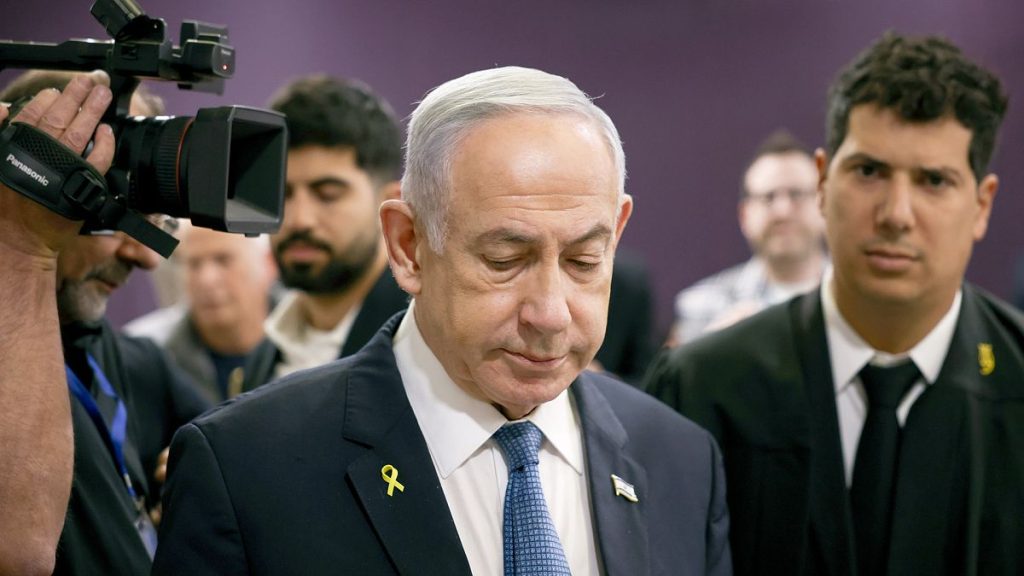The impending 80th anniversary of the liberation of Auschwitz-Birkenau, the notorious Nazi death camp, has sparked a diplomatic dilemma concerning the potential attendance of Israeli Prime Minister Benjamin Netanyahu. The International Criminal Court (ICC) issued an arrest warrant for Netanyahu in November 2023 for alleged war crimes and crimes against humanity committed during the 2022-2023 Gaza war. This warrant obligates ICC member states, including Poland, to detain Netanyahu if he enters their territory. However, the Polish government, under Prime Minister Donald Tusk, has assured Netanyahu’s safety and freedom from arrest should he choose to attend the commemoration. This decision has generated debate about Poland’s commitment to international law and its relationship with both Israel and the ICC.
The Polish government’s assurance of safe passage for Netanyahu stems from a request by President Andrzej Duda, who belongs to the opposition Law and Justice party (PiS). Duda’s request, conveyed to the government through a presidential aide, specifically sought a guarantee that Netanyahu would not be detained if he attended the Auschwitz commemoration. Prime Minister Tusk responded with a resolution ensuring the “safe participation of the leaders of Israel” in the event. He explicitly confirmed that whether it was the prime minister, president, or any other Israeli minister attending the commemoration, they would not be subject to arrest. Tusk underscored that this resolution was specifically tailored to the Auschwitz commemoration and did not constitute a general disregard for ICC warrants.
This delicate situation highlights the complexities of international law and the delicate balance between upholding international obligations and maintaining diplomatic relations. Poland finds itself navigating the conflicting demands of its membership in the ICC, its historical ties with Israel, and the significance of the Auschwitz commemoration. The ICC, established to prosecute individuals for the most serious international crimes, relies on the cooperation of its member states to enforce its warrants. However, the ICC lacks its own police force and depends on member states to apprehend and surrender suspects. Israel, notably, is not an ICC member and does not recognize the court’s jurisdiction. This stance further complicates the situation, as Israel argues that the ICC has no authority over its citizens.
The decision by Poland to guarantee Netanyahu’s freedom from arrest has drawn criticism from some quarters who argue that it undermines the authority of the ICC. Critics point out that allowing Netanyahu to visit Poland without facing arrest sets a dangerous precedent and could encourage other countries to disregard ICC warrants. This, they argue, weakens the court’s ability to hold individuals accountable for serious international crimes and undermines the principle of international justice. On the other hand, supporters of Poland’s decision emphasize the unique circumstances of the Auschwitz commemoration, arguing that the event’s historical and symbolic importance outweighs the need to enforce the ICC warrant in this specific instance.
The European Commission, through its spokesman Anouar El Anouni, has reiterated the EU’s commitment to international criminal justice and the importance of cooperating with the ICC. While not directly addressing Poland’s specific decision regarding Netanyahu, El Anouni’s statement underscored the EU’s expectation that all member states cooperate with the ICC, including executing outstanding arrest warrants. This statement reflects the broader international legal landscape, where the ICC’s effectiveness relies heavily on the willingness of states to uphold their obligations under the Rome Statute, the treaty that established the court. The ICC’s ability to deter future atrocities and provide justice for victims depends on its ability to hold perpetrators accountable, which, in turn, depends on state cooperation.
The question of Netanyahu’s attendance at the Auschwitz commemoration remains uncertain. The Polish Foreign Ministry, as of Thursday, had not received any official confirmation of his plans. If Netanyahu does attend, the event will be fraught with symbolic significance, juxtaposing the remembrance of the Holocaust’s horrors with the ongoing debate about international justice and accountability for contemporary alleged crimes. The commemoration, attended by international officials and Holocaust survivors, serves as a powerful reminder of the atrocities committed at Auschwitz-Birkenau, where over 1.1 million people, mostly Jews, were systematically murdered. The presence of Netanyahu, under the cloud of an ICC warrant, would add another layer of complexity to an already emotionally charged event.

